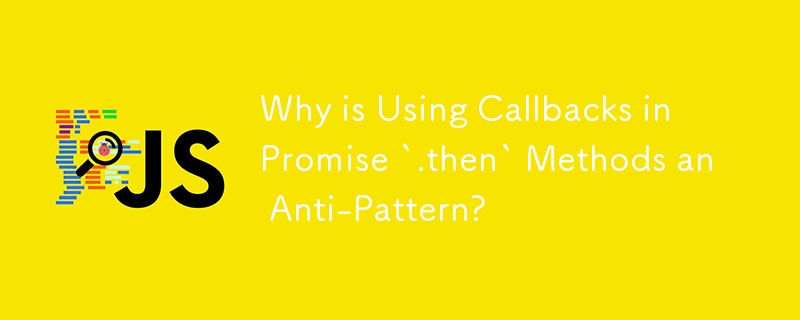

Using Callbacks in Promise .then Methods: An Anti-Pattern
The practice of providing a callback function to an AngularJS service as seen in the code snippet you provided may seem convenient, but it follows an anti-pattern. This approach disrupts the asynchronous programming flow and inversion of control intended by Promises.
Why is it an Anti-Pattern?
Refactoring Solution:
To refactor the code and eliminate these issues, you can use a plain .then method without a callback function:
var getTokens = function() {
return $http.get('/api/tokens');
};In the consumer module, you can then directly use .then to chain operations:
yourModule.getTokens()
.then(function(response) {
// handle it
});Benefits of the Refactored Code:
The above is the detailed content of Why is Using Callbacks in Promise `.then` Methods an Anti-Pattern?. For more information, please follow other related articles on the PHP Chinese website!
 Compare the similarities and differences between two columns of data in excel
Compare the similarities and differences between two columns of data in excel
 Win10 My Computer Icon Retrieval Tutorial
Win10 My Computer Icon Retrieval Tutorial
 sort sorting function usage
sort sorting function usage
 How to install printer driver in linux
How to install printer driver in linux
 How to unlock android permission restrictions
How to unlock android permission restrictions
 excel duplicate item filter color
excel duplicate item filter color
 what is optimization
what is optimization
 How to repair sql database
How to repair sql database
 How to use append in python
How to use append in python




